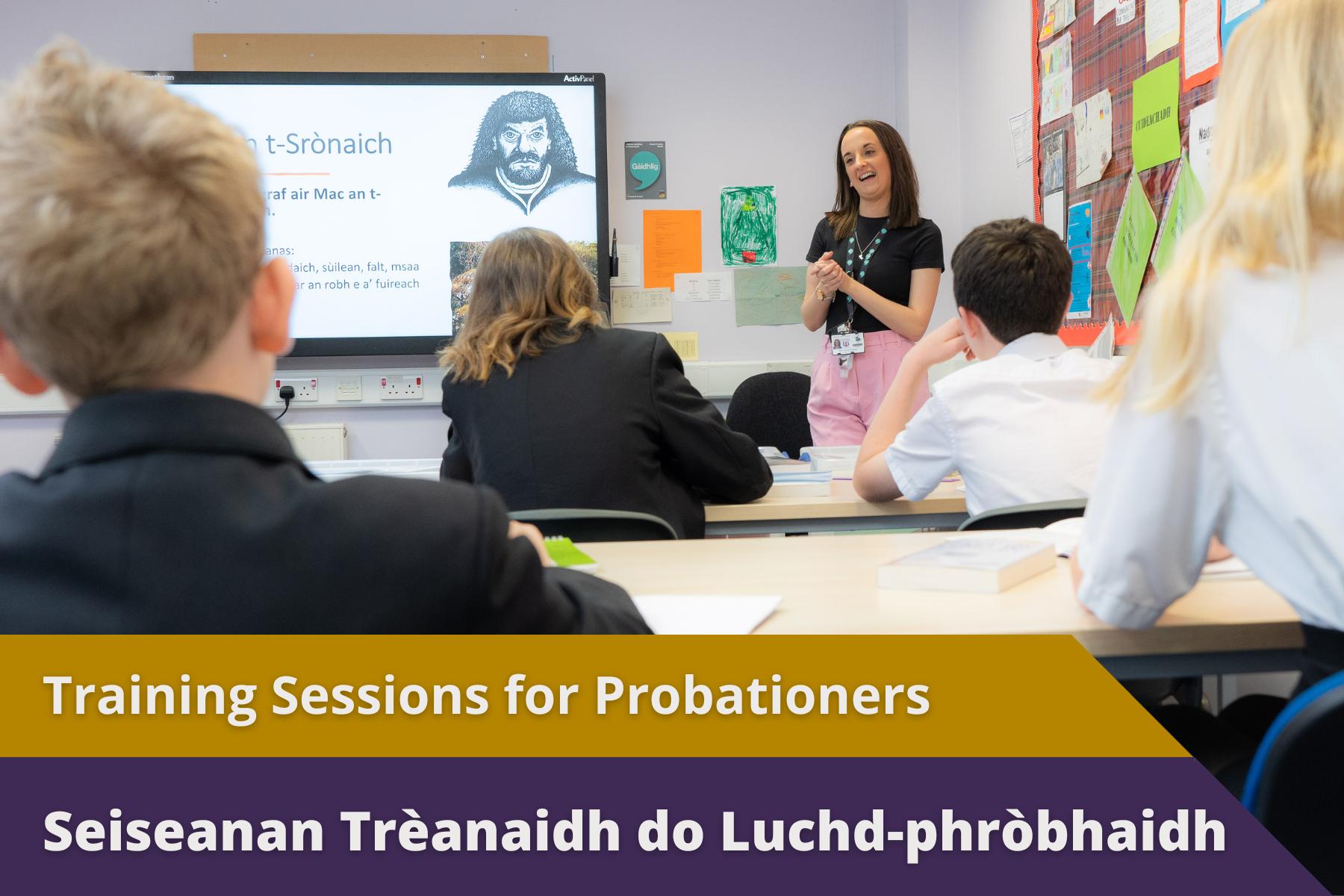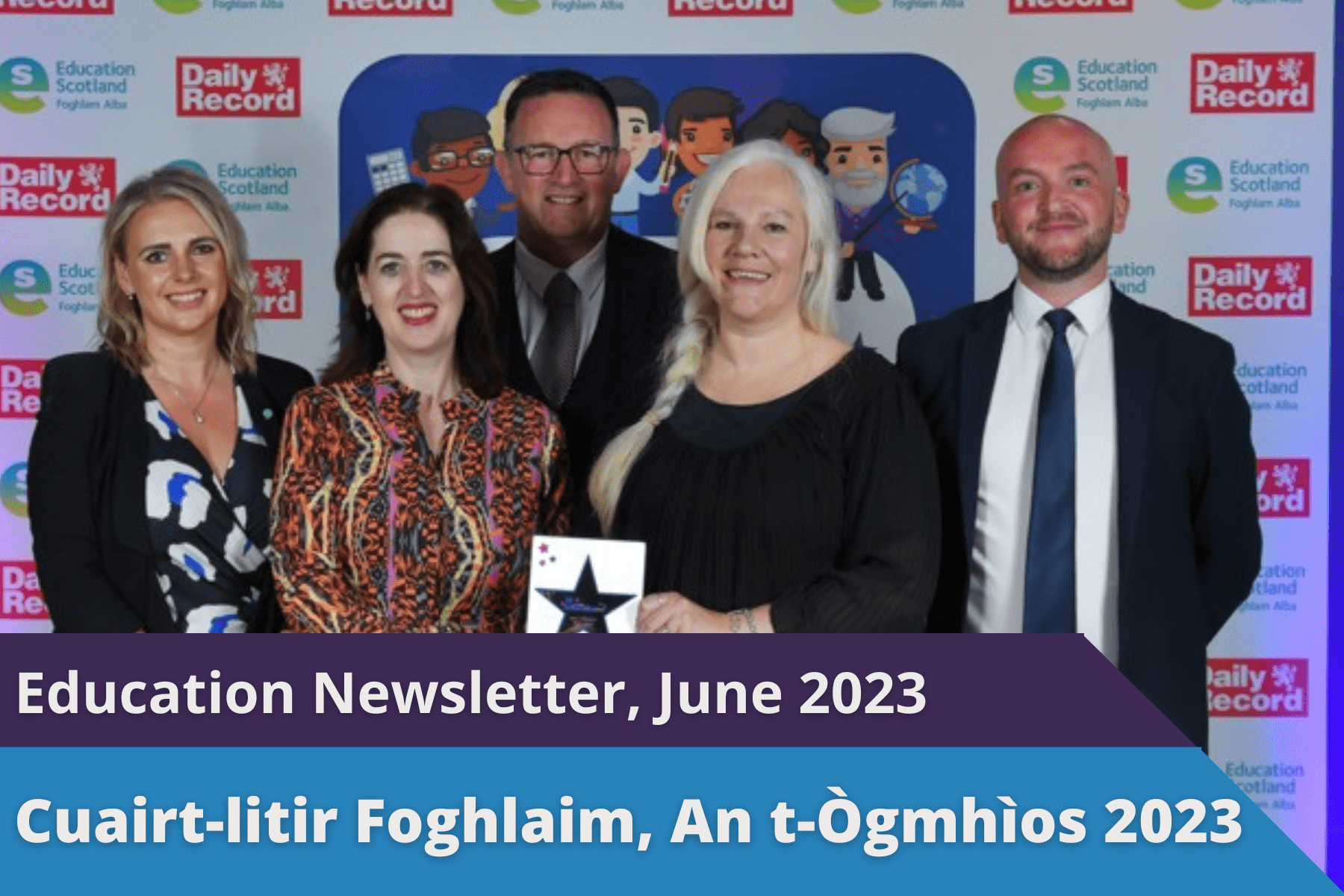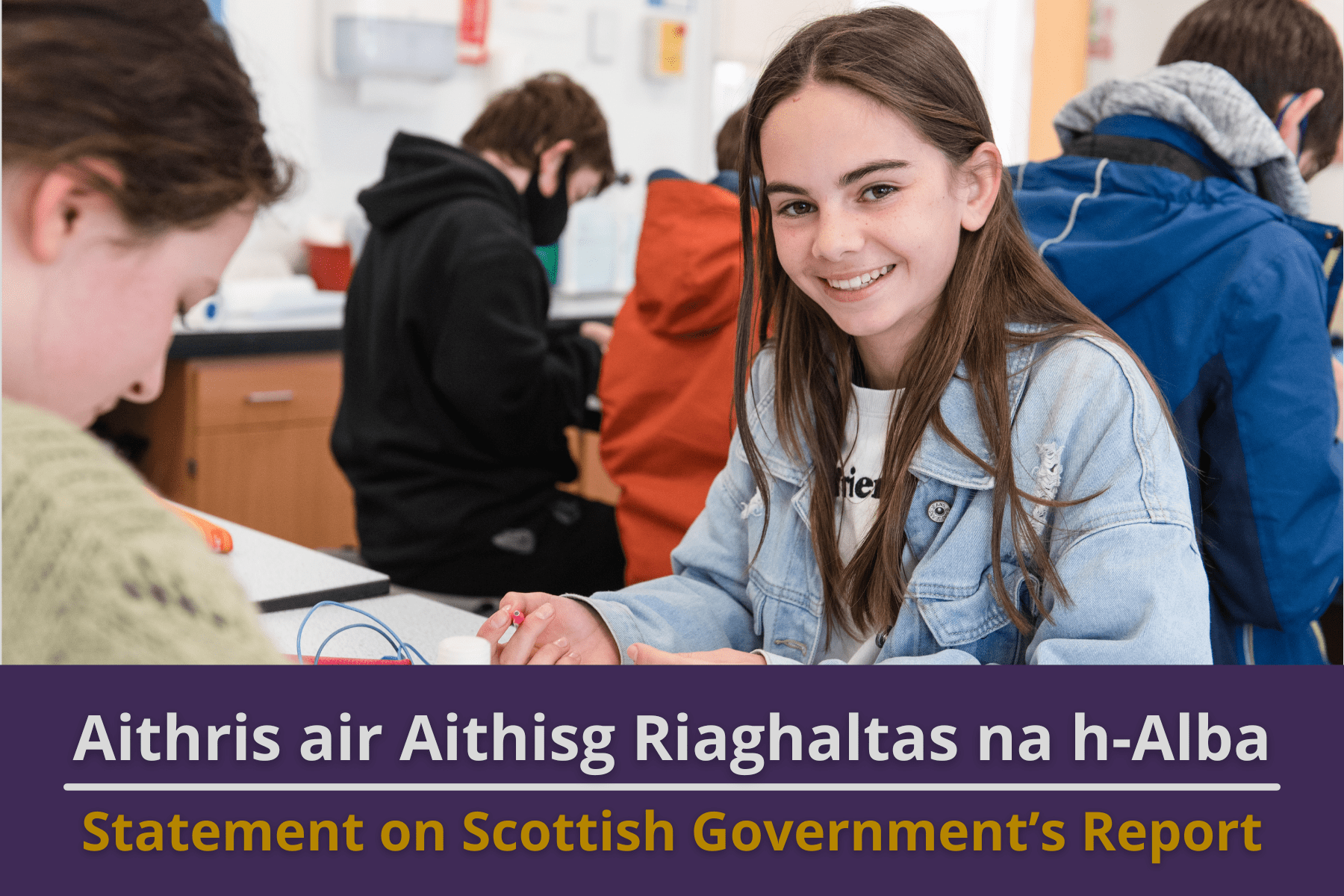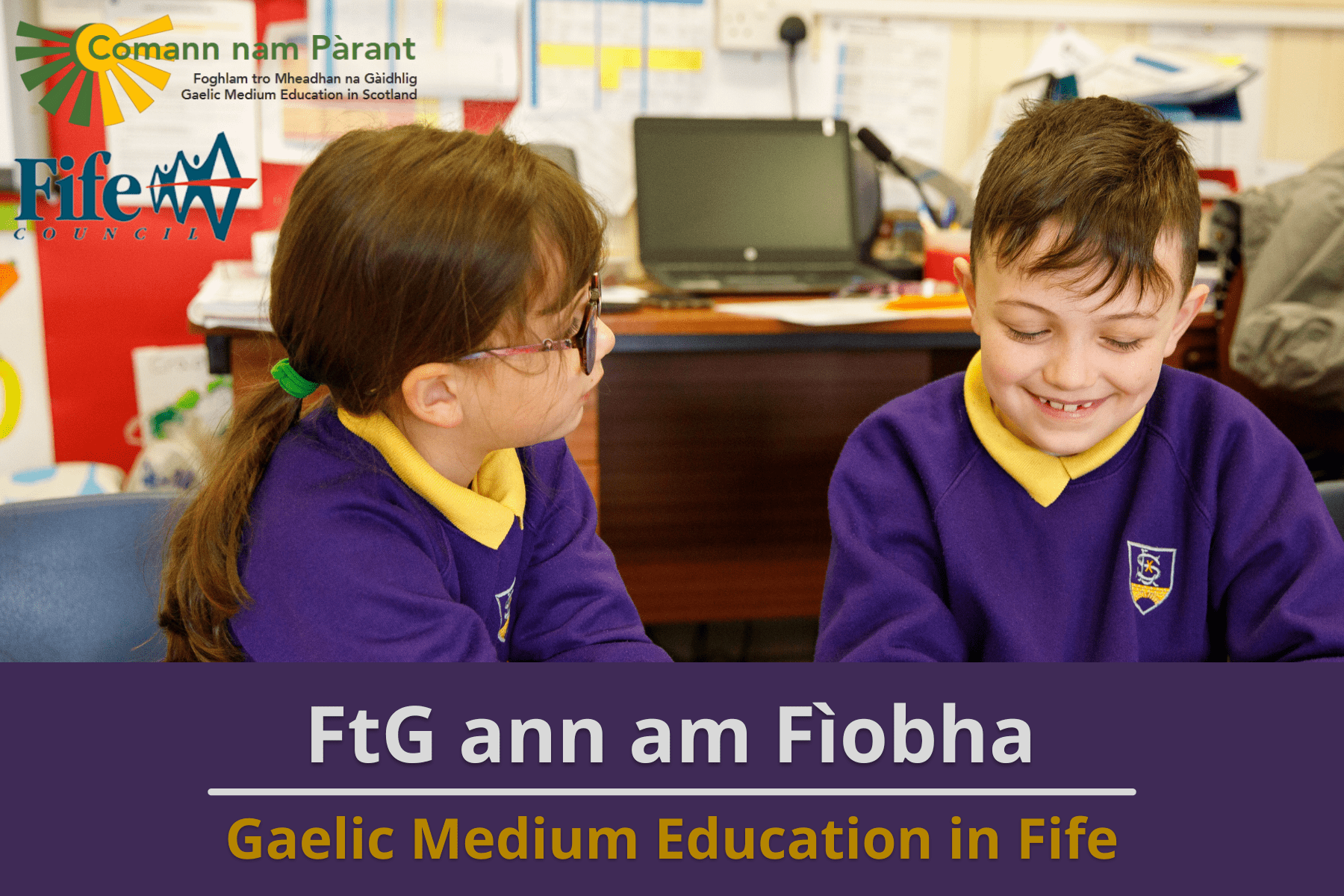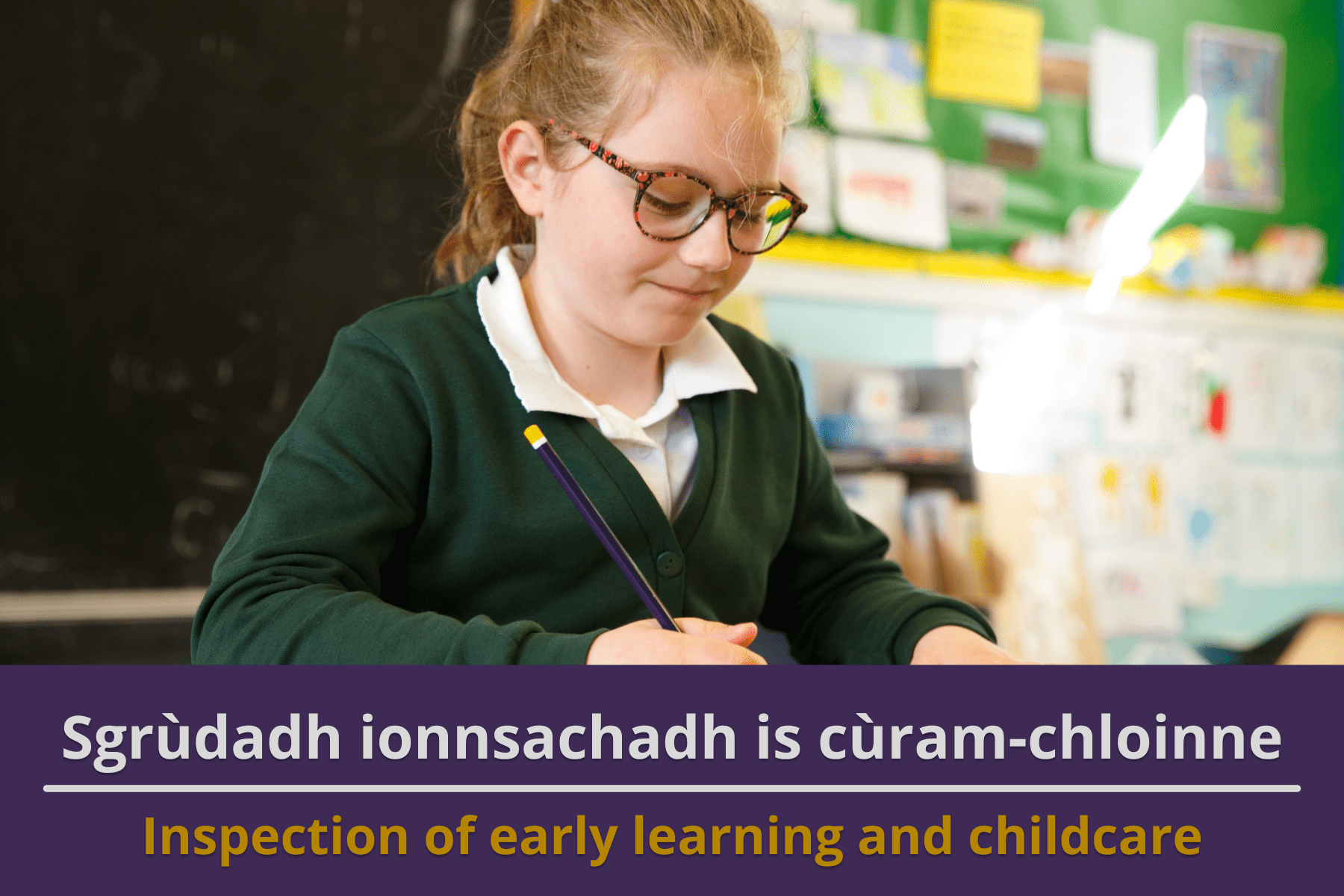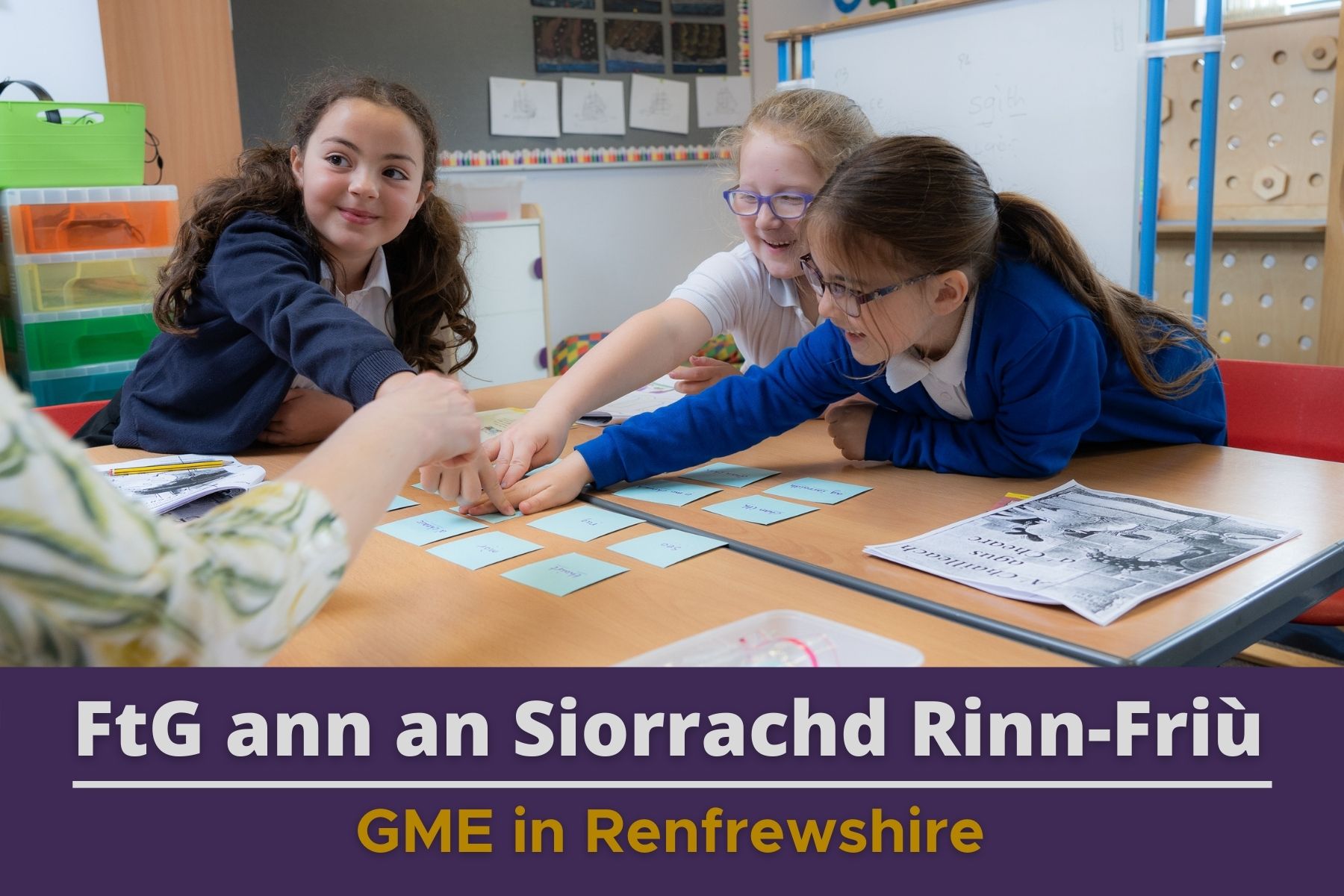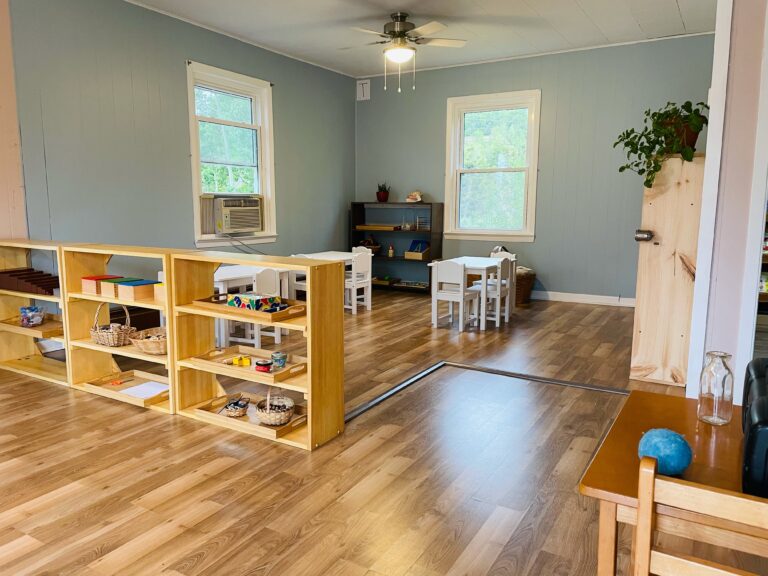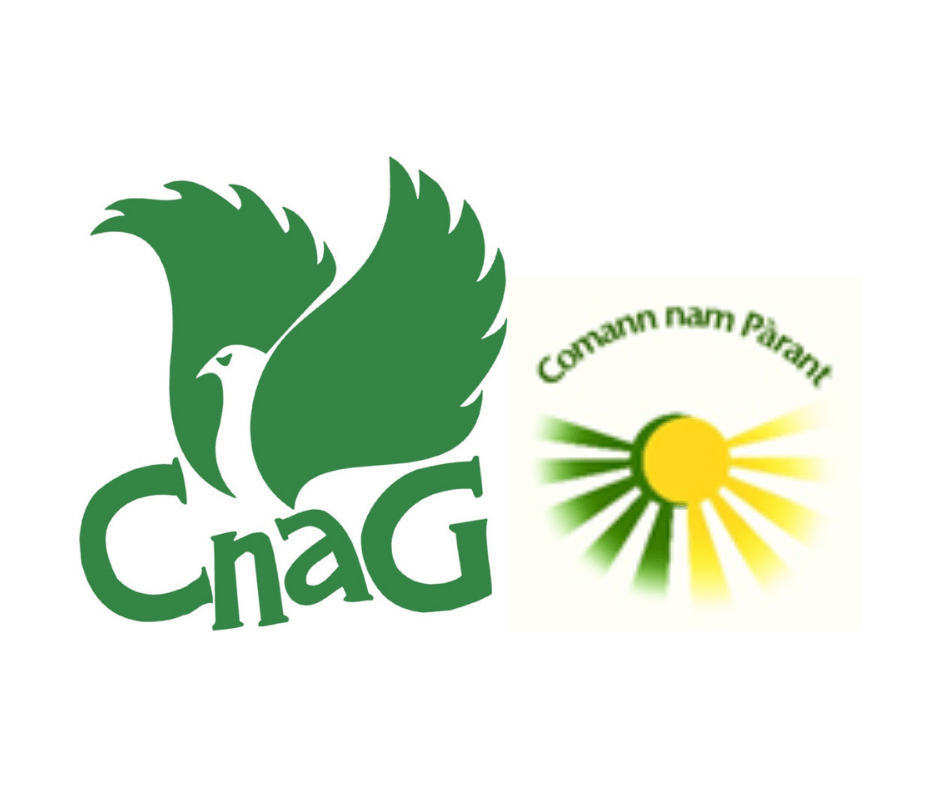Welcome to the first newsletter from the Education Team at Bòrd na Gàidhlig. We want to keep you up to date with some of the activities we have been involved in and also let you know about upcoming events. If you would like to subscribe to receive these newsletters by email as they come out, you can subscribe by filling out the short form at the bottom of this page!
Visiting Schools

The Development Officer (Teachers) Angela MacLeod has been visiting secondary schools across the country to encourage young people to consider a career in Gaelic teaching. She would like to thank each school that welcomed her, especially the Gaelic teachers undertaking admirable work each day, and the enthusiastic pupils who took part.
If Angela has not yet had the opportunity to visit your school she hopes to do so at the beginning of the next school year. You are very welcome to get in touch if you think that a session of this nature would be useful for your school, college or university by emailing angela@gaidhlig.scot.
Careers Fairs and other Events
Angela has been attending Careers Fairs and DYW Events to encourage young people to consider a career in Gaelic teaching. She also took part in a leadership conference for S5 and S6 pupils at Sgoil Ghàidhlig Ghlaschu on Friday 2nd June.
If there is an event taking place at your school, college, university or in your community, please contact the Development Officer (Teachers) if there is an opportunity for her to attend by emailing angela@gaidhlig.scot.
Scottish Education Awards
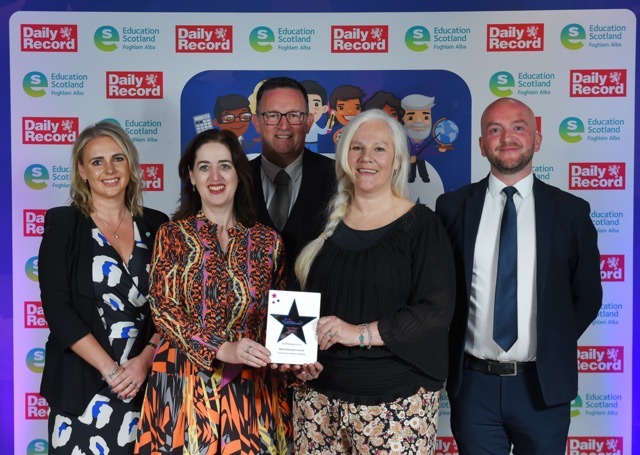
The Scottish Education Awards took place in Glasgow on Wednesday 7th June and Bòrd na Gàidhlig were delighted to support the Gaelic Education Award again this year. Congratulations to the three schools who were on the shortlist – James Gillespie’s High School, Goodlyburn Primary School and Dunoon Grammar School – and especially to James Gillespie’s High School who were the winners of the Gaelic Education Award.
Young Scot Awards

Bòrd na Gàidhlig’s Director of Education Jennifer McHarrie attended the Young Scot Awards in Glasgow and was hugely encouraged to see Gaelic speakers on the shortlist! Congratulations to everybody who made the shortlists and who won an award on the night.
COSLA
Shona MacLennan, Ceannard of Bòrd na Gàidhlig and Jennifer McHarrie, Director of Education at Bòrd na Gàidhlig, met with representatives from COSLA on Monday 12th June to discuss collaboration on Gaelic education developments.
Gaelic Early Years Grants
The Early Years Grants for groups supporting parent and toddler sessions and early years development is open until Thursday 13th July.
Bòrd na Gàidhlig held two online information sessions about the scheme and to offer advice on completing applications forms, but if you have any further questions about the scheme please contact the funding team tabhartas@gaidhlig.scot
You can find more information about the scheme here.
Gaelic Education Grants
The Education Grants scheme is open until Thursday 5th September, with support available for students on a teaching/childcare course, Gaelic teachers looking to teach another subject or develop their skills, or teachers without Gaelic who want to learn the language to move to teach in GME.
Support is available for course fees and also living costs, and there is additional support for those who are care-experienced and those undertaking secondary teaching.
You can find more information about the scheme here.
0-3 Years Research
Wilson McLeod is conducting research into the 0-3 sector on behalf of Bòrd na Gàidhlig. Information has been sent out to early years groups but if you would like further information please get in touch by emailing foghlam@gaidhlig.scot.
Greenfaulds Academy

The Director of Education, Development Officers for Early Years and Teachers and BnG’s Communications Officer attended a Gaelic event at Greenfaulds Academy in May. S1-S3 pupils from secondary schools in Central Scotland came together to learn more about the benefits of a career in Gaelic. This was a very successful event and we look forward to supporting it in the future.
Training Sessions for New Teachers
Bòrd na Gàidhlig held four online training sessions for probationer teachers during the 2022/23 session with inputs from Education Scotland, Stòrlann, a range of Gaelic organisations (such as Fèisean nan Gàidheal, CnaG, and Astar Media on behalf of FilmG) and Sabhal Mòr Ostaig.
If you are a new teacher in 2023/24 and interested in the training sessions, contact angela@gaidhlig.scot.
Sabhal Mòr Ostaig Education Conference
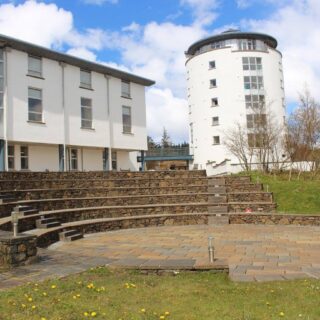
The education team attended the Gaelic Education: Past, Present, Future conference at Sabhal Mòr Ostaig, that received funding from Bòrd na Gàidhlig. Director of Education Jennifer McHarrie spoke on the subject of ‘Creating a new National strategy for Gaelic Education’.
cleachdi.scot
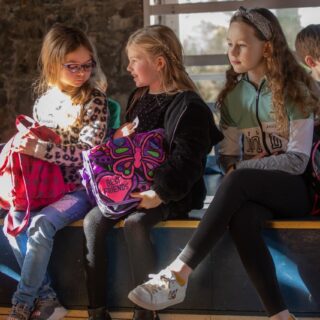
We hope that everybody who is about to go on summer break enjoys the holidays, especially the teachers, pupils and parents who are so very deserving of them! We would like to remind you that there are Gaelic events listed on the cleachdi website, both in local areas around the country and online. We hope that there will be opportunities for you to use your Gaelic over the holidays.
Why don’t you take a look at the website, and register an event that you know of?
Check out the Cleachdi website here!

